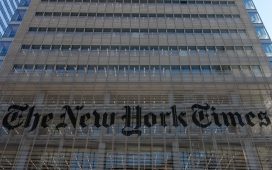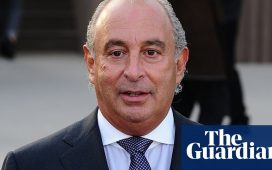Unlock the Editor’s Digest for free
Roula Khalaf, Editor of the FT, selects her favourite stories in this weekly newsletter.
WPP is set to pick former BT chief Philip Jansen as its new chair, ending a lengthy search for a boardroom heavyweight to help the UK-based advertising group through a period of sweeping technological change.
People familiar with the matter said Jansen has been lined up to succeed Roberto Quarta, who was appointed chair in 2015 and handled the acrimonious departure of the then-WPP chief executive Sir Martin Sorrell in 2018.
The move to bring in Jansen, who has also led global businesses such as payment processing company Worldpay, could be announced as early as Tuesday, one person close to the situation said.
WPP and Jansen declined to comment on Monday.
WPP board member and former Burberry boss Angela Ahrendt has led the process to appoint Quarta’s successor.
Jansen, who has also worked at consumer products company Procter & Gamble, brings experience across marketing and technology as well as a record of corporate transformation.
He led the flotation of Worldpay as chief executive and remained as co-head of the wider group after it was acquired by Vantiv in 2017.

At BT, Jansen oversaw a £3bn cost-cutting programme while also supervising investment in the telecoms company’s network. Allison Kirkby succeeded him as BT chief executive this year.
Jansen is now poised to help WPP as the global advertising industry faces an existential threat from artificial intelligence tools that can replace many of the traditional functions of a marketing agency.
WPP chief executive Mark Read has been bullish about the opportunity of using AI to improve and enhance the company’s services rather than seeing them at risk of being made obsolete by the technology.
But analysts are watching closely as to which of the four large global advertising groups can best use AI to gain competitive advantage.
WPP has also encountered questions about its lacklustre share price at a time when rivals such as Publicis are trading at higher multiples to earnings.
Some analysts have asked if WPP is trading at too large a discount to the sum of its many businesses, which range from advertising agencies GroupM and Ogilvy to public relations group Burson.
WPP’s shares have been broadly flat this year, giving it a market capitalisation of about £8bn.
The group has recently reorganised its divisions and brought some of its agency brands under a single masthead in order to simplify operations and cut costs.
The Financial Times reported in June that private equity group KKR had approached WPP about taking control of financial communications business FGS Global. WPP, which owns a 55 per cent stake in FGS, rejected the approach.
In his valedictory letter as WPP chair in the company’s 2023 annual report, Quarta gave a vote of confidence in current management, saying that in 2018 “WPP was contending with a series of major strategic challenges”.
He added “the executive team brought stability and new direction to WPP, transformed the company’s culture and revitalised its offer”.
Even so, Quarta acknowledged 2023 had been “more challenging, largely due to the impact of reduced spending in the US from technology clients, to which WPP has greater exposure than its peers”.
Advertising executives said those clients were now spending again, meaning there will be pressure on WPP to show signs of improvement at its next results in August.










